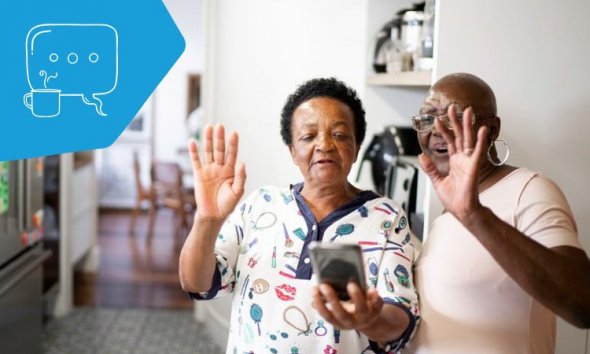Connection is about relating to one another and feeling understood. Speak to the people in your life, be it friends, family, colleagues or neighbours. Build new connections to expand your circles – this could be at work or in your local community. Think of these as the cornerstones of your life and invest time in developing them. Developing these connections will support and enrich you every day.
Starting a conversation about someone’s wellbeing can be difficult. Below are some pointers about how you might approach a colleague at work if you’re worried about them. With an empathetic and non-judgmental outlook, and a few open questions up your sleeves, you can create the right moment to talk. These tips apply if you are working from home too.
If we noticed a colleague had a bad cough or had started to limp we would ask them how they’re doing and show our support. But sometimes we can be nervous about asking someone how they are doing mentally if we’re concerned about them. We may worry that we’ll make the situation worse or that we’re overstepping professional boundaries. Especially if someone has already said they are “fine”. We may need to make extra effort to look out for signs while many of us are still working from home.
Remember that no one expects you to be an expert, but that if you can listen and then help signpost someone to extra support or information, you can make a big difference.

Create the right conditions
Give some thought to how, when and where you might broach the conversation:
- Choose a place and time where you can speak privately – perhaps suggest a walk outside, or suggest you go grab a coffee. Or you could suggest a quiet meeting room.
- Choose the right time – a break, lunchtime or perhaps a private meeting where you won’t be interrupted.
- Create the right conditions for active listening – it may be better to sit or be beside them. Give affirmative physical and/or verbal nods.
- If you’re working from home be aware you may need to demonstrate active listening more verbally on a phone/video call.

Ask open questions
- Ask them “How are you today?” – Sometimes making it about the present can prevent the ubiquitous “I’m fine” response.
- “I’ve noticed you haven’t seemed yourself lately, tell me how you’re feeling”
- How do you look after yourself?
- What support do you have in place? Are there people you can talk to?
- Reassure them it’s ok to talk.
- “I want you to know that I’m here to listen and help if you need me to.”
The University has resources to support you – you can also support others:
- connect with others during learning at work week and sign up for Coffee with a Mystery colleague, building on the successful initiative, Kent Colleagues Connect (email Ldev@kent.ac.uk to take part)
- apply to become a mental health ally

